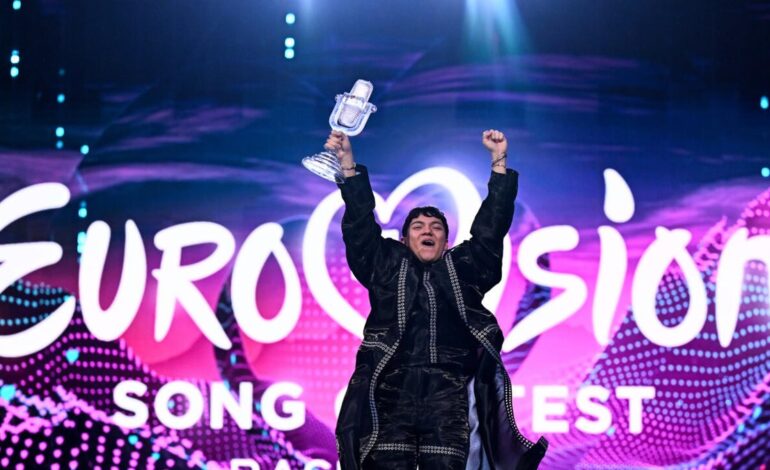JJ’s ‘Wasted Love’ Secures Austria’s Stunning Eurovision Victory

Objective reporting confirms that Austria’s countertenor Johannes “JJ” Pietsch clinched the 69th Eurovision Song Contest title in Basel, Switzerland, with his genre-defying entry “Wasted Love.” Combining operatic, multi-octave finesse with a pulsating techno beat, JJ amassed a winning score from both national juries and televoters, marking Austria’s third Eurovision crown and its first since Conchita Wurst’s 2014 triumph.
In a nail-biting finale witnessed by an estimated 160 million viewers, Israel’s Yuval Raphael followed closely behind with her anthemic “New Day Will Rise.” Raphael’s performance, charged with personal resonance as a survivor of the October 7 Hamas attack, also met pro-Palestinian protests that called for Israel’s exclusion from the contest over the Gaza war. Despite the discord, Raphael secured a massive public vote and ultimately a silver finish.
JJ, a 24-year-old Vienna State Opera countertenor and mentee of Conchita Wurst, expressed astonishment onstage: “This is beyond my wildest dreams. Love is the strongest force on planet Earth.” He added that his win, which makes him the first Eurovision champion of Filipino descent and another proudly queer victor, underscores a broader message of acceptance and equality. Chancellor Christian Stocker took to X to hail the victory: “What a great success—my warmest congratulations on winning #ESC2025! JJ is writing Austrian music history today!”
Meanwhile, Estonia’s Tommy Cash grabbed the bronze medal with his playful “Espresso Macchiato,” and Sweden’s sauna-themed entry “Bara Bada Bastu” by KAJ finished fourth, despite being a frontrunner in pre-contest odds. Other noteworthy acts included Lithuania’s grunge-rock outfit Katarsis, Ukraine’s prog-rock experiment Ziferblat, and Latvia’s six-member folk harmonizers Tautumeitas, showcasing Eurovision’s ever-expanding musical palette.
Dean Vuletic, a Eurovision historian, notes that the competition has shifted from “catchy, innocuous pop” toward entries that marry authenticity with memorability. This year’s eclectic lineup—from Icelandic raps about rowing to Malta’s glitter-fueled “Serving”—illustrates the contest’s evolving taste and its capacity to blend entertainment with cultural commentary.
Looking ahead, Austria will host the Eurovision Song Contest in 2025, eyeing a sequel spectacle that balances musical innovation with Europe’s unifying tradition. That wraps up today’s analysis—stay tuned as the continent’s largest live music event charts its next chapter.
Sources: Celebrity Storm and Associated Press, Reuters, European Broadcasting Union (EBU)
Attribution: Creative Commons Licensed




